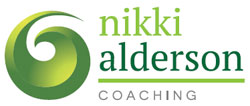A 3-minute read on how to recognise your value and negotiate confidently to achieve it.
Bridge the Gender Pay Gap
Most women are less bullish than men when it comes to assessing our worth and pitching for a pay rise. It’s one of the reasons the gender pay gap is still very much with us, despite a gradual increase in transparency around pay.
The gap is slowly closing – but it’s still around 15.5% for all employees, and if you’re a woman over 40 the pay gap is more than 10%. The furore at the BBC when its high-profile female presenters were revealed to earn less than their male colleagues led to a shake-up, more transparency and women finally entering the ranks of its top 10 earners. But for most of us, the lack of salary transparency and a formal pay structure is still an unsettling reality.
I’ve lost count of the number of conversations I’ve had with fellow female professionals about the common phenomenon of higher pay for male colleagues doing the same job, with less experience. But the sense of being undervalued and the festering resentment this can cause is one of the reasons women leave the legal profession early.
I was a mid-career leaver too, faced with having to overcome the perceived “negative impact” on my career progression – and income – as a result of taking extended maternity leave. It was only then, having retrained as a coach, that I began to fully appreciate my own worth and find my true vocation.
Four years on, as a specialist coach and speaker supporting HR departments with female talent retention and development, I take real satisfaction from helping to empower female lawyers and other women in business to achieve success on their own terms and become leaders in their field. Part of that process is helping them to value their worth and feel comfortable with it.
These are my top tips:
1. Identify your USP
 Pinpoint the standard ‘everyday’ stuff you do for your client/ employer, that every other person within your sector would do. Then consider: What is it YOU do that makes you stand out as making a material difference to them? What is your USP or the “value-added” stuff that sets you apart and causes you to be valued at a different rate than those others? What qualifications, skills, and life-experiences do you have, over and above, say, an 18 year old school leaver, that sets you apart, making you good at what you do? Jot down examples of success, and where you’ve gone the extra mile to achieve a goal. You may or may not be asked for them – but having them front of mind will increase confidence in your ability.
Pinpoint the standard ‘everyday’ stuff you do for your client/ employer, that every other person within your sector would do. Then consider: What is it YOU do that makes you stand out as making a material difference to them? What is your USP or the “value-added” stuff that sets you apart and causes you to be valued at a different rate than those others? What qualifications, skills, and life-experiences do you have, over and above, say, an 18 year old school leaver, that sets you apart, making you good at what you do? Jot down examples of success, and where you’ve gone the extra mile to achieve a goal. You may or may not be asked for them – but having them front of mind will increase confidence in your ability.
When deciding my fee structure, I also considered factors such as target client base, the frequency with which I would coach them, along with my previous experience, qualifications etc. You might find it helpful to work out an average fee within a certain range from the ‘market rate’. It goes without saying that experienced practitioners charge substantially more, the most junior substantially less.
With all those factors in mind, pitch your fee accordingly, without devaluing yourself.
 2. Get comfortable with your value
2. Get comfortable with your value
Once you have identified your own value, you need to get comfortable with the feeling that you are worth it.
Before finalising my prices, I was encouraged to consider the fee structure of other coaches. As is often the case with comparisons, however, for me this exercise became unhelpful: I had sufficient confidence in myself to realise that when it came down to it, none of them were ME, with my unique experience, my qualifications, and my particular life-path to this specific point in time. The question should simply have been “what did I feel I was worth?”
A client of mine, albeit coming from a place of under-confidence, experienced similar. She had been holding back on making a price increase to her services, worrying that she wasn’t worth it and that clients would vote with their feet if she asked for more. On becoming aware, though, that others offering a similar service to her were charging substantially more, she introduced what she initially felt was a significant increase to her usual rate. Despite her initial fears, once she got comfortable with what she felt she was worth, and gained the confidence to stick with it, she found that not one single client expressed any disquiet, and ALL remained loyal.
Consider whether then, as in that example, your own view of your value is influenced by fact or rather your own self-limiting beliefs and negative mind-set.
Get comfortable with fact; your confidence will follow.
3. Negotiate confidently and effectively
 Why are we afraid of pricing ourselves out of the market? In fact, charging too little can negatively impact upon our credibility. Knowing our own financial worth, and asking confidently for it, generates confidence not only in ourselves but in others. Pricing too cheaply can lead others to undervalue our services.
Why are we afraid of pricing ourselves out of the market? In fact, charging too little can negatively impact upon our credibility. Knowing our own financial worth, and asking confidently for it, generates confidence not only in ourselves but in others. Pricing too cheaply can lead others to undervalue our services.
Often ‘free ticket’ events struggle for participants on the day because of the ease with which people drop out, over and above events that have charged even a nominal fee, instantly adding value. Participants respond to the charge, attending because they feel they have a vested interest in so doing. And look at the different way we treat our most prized, expensive evening wear, compared to knockabout, ten-a-penny day wear: In the same way, employers, colleagues, client and customers are more likely to treat your services, and you, with more respect where prices reflect your own value. You’ve heard the phrase “reassuringly expensive”, right?!
Don’t let fees hold you back – set out concrete terms rather than a vague price range and run with it. You can always adjust it with subsequent clients, offer introductory rates or member discounts to those in professional bodies etc, and think creatively about how you can negotiate even better deals, such as through retainer rates.
The key to success is to start before you are ready… and with that in mind, I’d encourage you to just “Go for it!”
Nikki Alderson Biography
Nikki Alderson, specialist Corporate & Executive Coach, Keynote Speaker & Best Selling Author, & former Criminal Barrister with 19 years’ experience,
- supports organisations, law firms & barristers’ Chambers to retain female talent; &
- empowers female lawyers to achieve career ambitions.
Nikki specialises in 3 areas:
- Women Leadership Transition & Change;
- Enhanced Career break returner support; &
- Workplace resilience, confidence & wellness.
She is the author of Amazon No.1 Bestseller Raising the Bar: empowering female lawyers through coaching , (https://amzn.to/3fodKQX) nominee for the Inspirational Women Awards, Champion of the Year Category & finalist in the 2019 International Coaching Awards, International Coach of the Year Category.
https://www.facebook.com/nikkialdersoncoaching/?ref=bookmarks
https://www.linkedin.com/in/nikkialdersoncoaching/
Twitter: @NikkiAlderson2
Tags: gender pay gap; specialist coach; HR departments; female talent retention; empowering women; female professionals; women in business; increase confidence; negotiate better deals; women; key to success.

